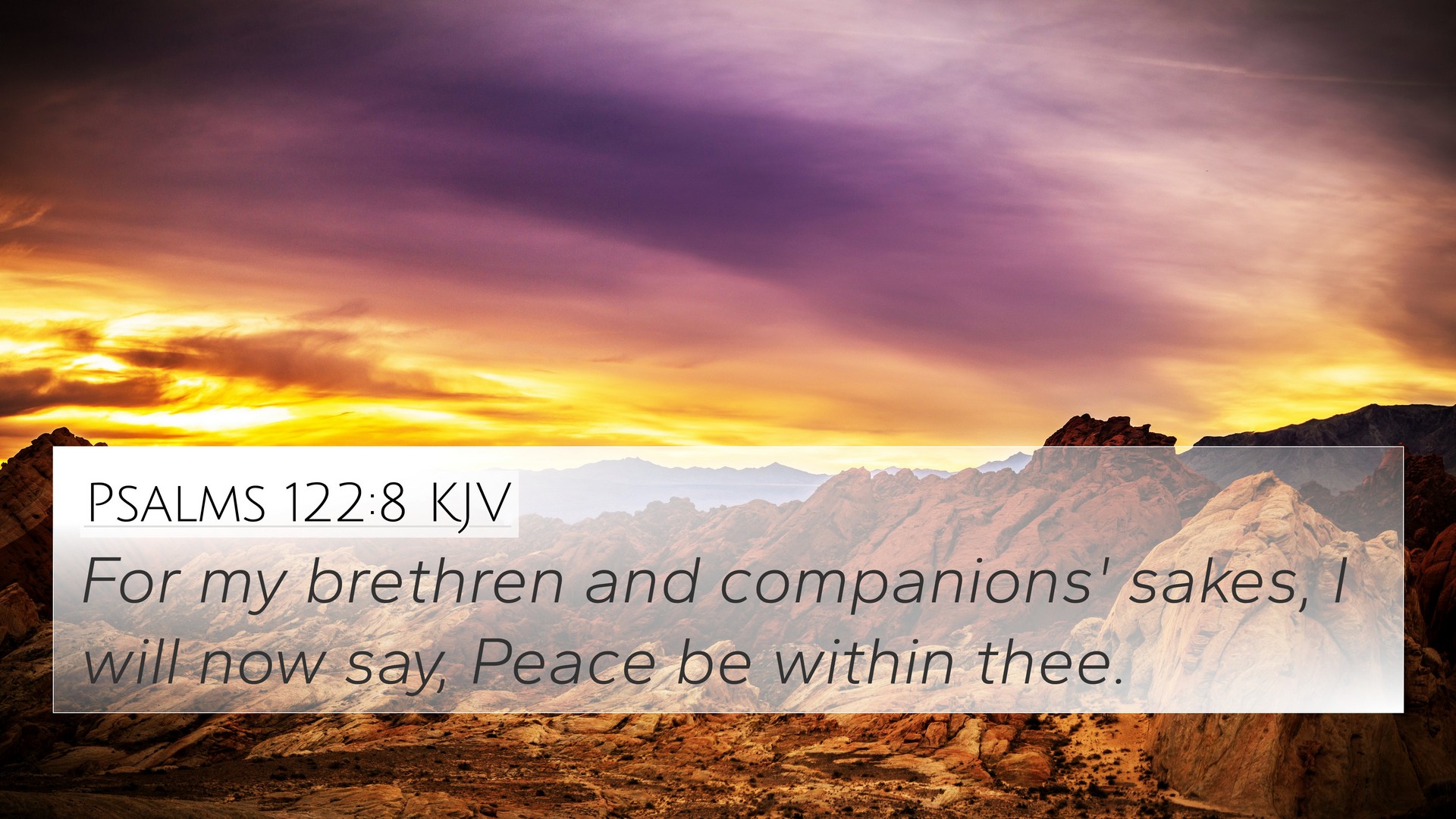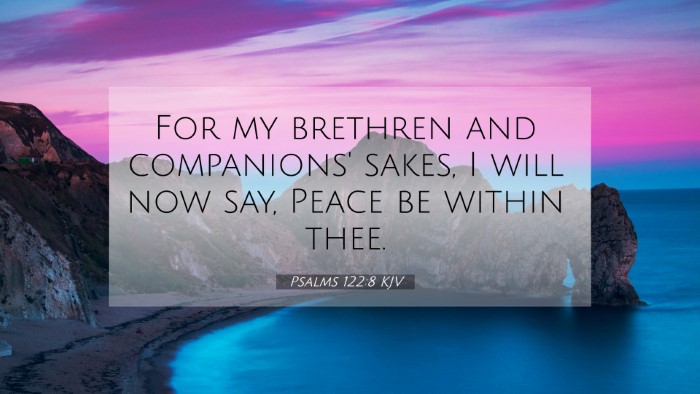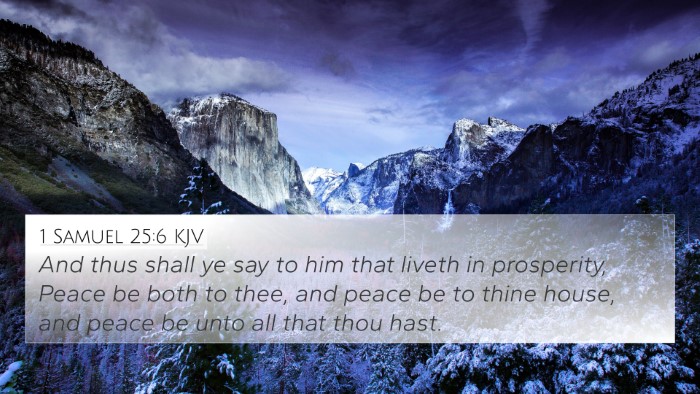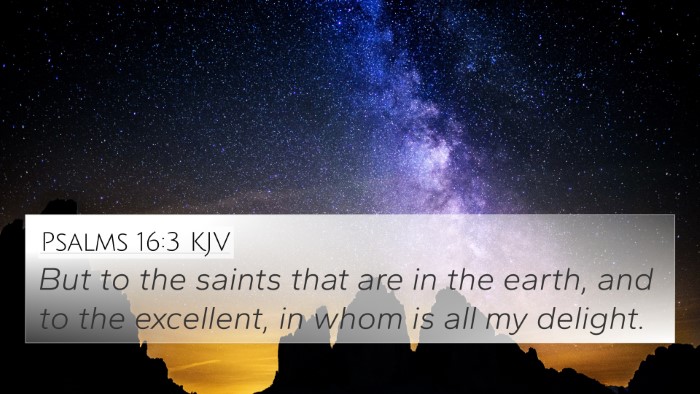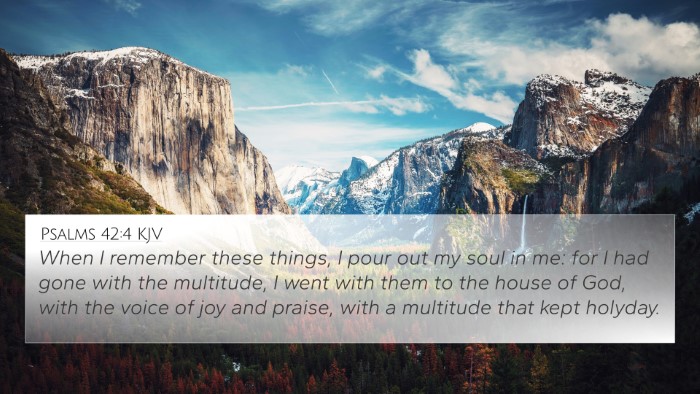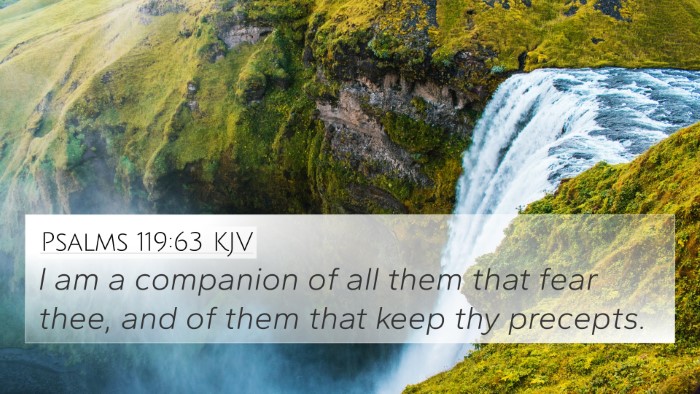Understanding Psalms 122:8
The verse Psalms 122:8 states, "For my brothers and companions' sake, I will say, 'Peace be within you!'" This verse captures a spirit of communal well-being and the desire for peace among those linked by kinship and fellowship. In this analysis, we draw from public domain commentaries to unravel the deeper meanings, related themes, and interconnections across various Biblical texts.
Meaning and Interpretation
Psalms 122:8 is a profound expression of solidarity and affection for one's community. The psalmist, traditionally attributed to David, expresses a desire for peace among his "brothers and companions," emphasizing the significance of community well-being.
Insights from Matthew Henry
Matthew Henry highlights the importance of peace in the context of relationships within the community. He emphasizes that the psalmist's call for peace transcends mere absence of conflict, suggesting a holistic sense of well-being and harmony within the community. Henry notes that this verse reflects a deep spiritual connection among individuals, where mutual support and goodwill are paramount.
Insights from Albert Barnes
Albert Barnes further elaborates on the communal aspect of the verse. Barnes points out that the psalmist is not only concerned for his immediate family but extends his prayers for peace to include all companions. This inclusivity reinforces the biblical notion that true peace is rooted in strong relationships and mutual care for one another's welfare. Barnes encourages readers to seek peace actively, highlighting its value in securing lasting joy and stability within the community.
Insights from Adam Clarke
Adam Clarke emphasizes the spiritual dimension of the plea for peace. He posits that peace should be perceived as a divine gift, one that believers ought to pursue and cherish. Clarke suggests that the psalmist's desire for peace reflects a fundamental characteristic of God’s nature, inviting believers to align their aspirations with God’s will for collective joy and harmony.
Cross-References and Thematic Connections
Understanding Psalms 122:8 can be enhanced by exploring various cross-referenced Bible verses. Here are several key passages that illustrate thematic connections:
- Psalms 34:14: "Turn away from evil and do good; seek peace and pursue it." This verse emphasizes the active pursuit of peace, resonating with the psalmist's intent.
- Matthew 5:9: "Blessed are the peacemakers, for they shall be called sons of God." This beatitude aligns with the psalmist's call for peace among companions.
- Hebrews 12:14: "Strive for peace with everyone, and for the holiness without which no one will see the Lord." The communal aspect of seeking peace again is highlighted here.
- Romans 12:18: "If possible, so far as it depends on you, live peaceably with all." This verse provides a practical approach that complements the psalmist’s aspirations.
- Psalms 133:1: "Behold, how good and pleasant it is when brothers dwell in unity!" This Psalm celebrates communal bonds, resonating with the themes found in Psalms 122:8.
- John 14:27: "Peace I leave with you; my peace I give to you." Here, Jesus speaks of a divine peace crucial to community well-being.
- Philippians 4:7: "And the peace of God, which surpasses all understanding, will guard your hearts and your minds in Christ Jesus." This reinforces the spiritual dimension of peace noted in the psalmist's words.
Cross-Referencing and Thematic Dialogue
The analysis of Psalms 122:8 and its connections foster fruitful inter-Biblical dialogue. By employing tools for Bible cross-referencing and Bible concordance, one can discern valuable insights about the interconnectedness of scripture. This method allows for a comparative Bible verse analysis that deepens understanding.
How to Use Bible Cross-References
Engaging with cross-references is an effective way to illuminate themes within the Bible. By utilizing a Bible cross-reference guide, readers can explore similar verses, thereby enriching their comprehension of specific themes such as peace, community, and spiritual well-being throughout the scriptures.
Conclusion
Psalms 122:8 stands not only as a plea for peace but as a call to cultivate loving relationships within the community. The psalmist’s aspiration speaks to the heart of what it means to live in harmony with others. The insight gained from public domain commentaries, combined with thematic Bible verse connections, reveals the deep, interwoven nature of scripture, promoting a comprehensive understanding of God's will for community and peace.
